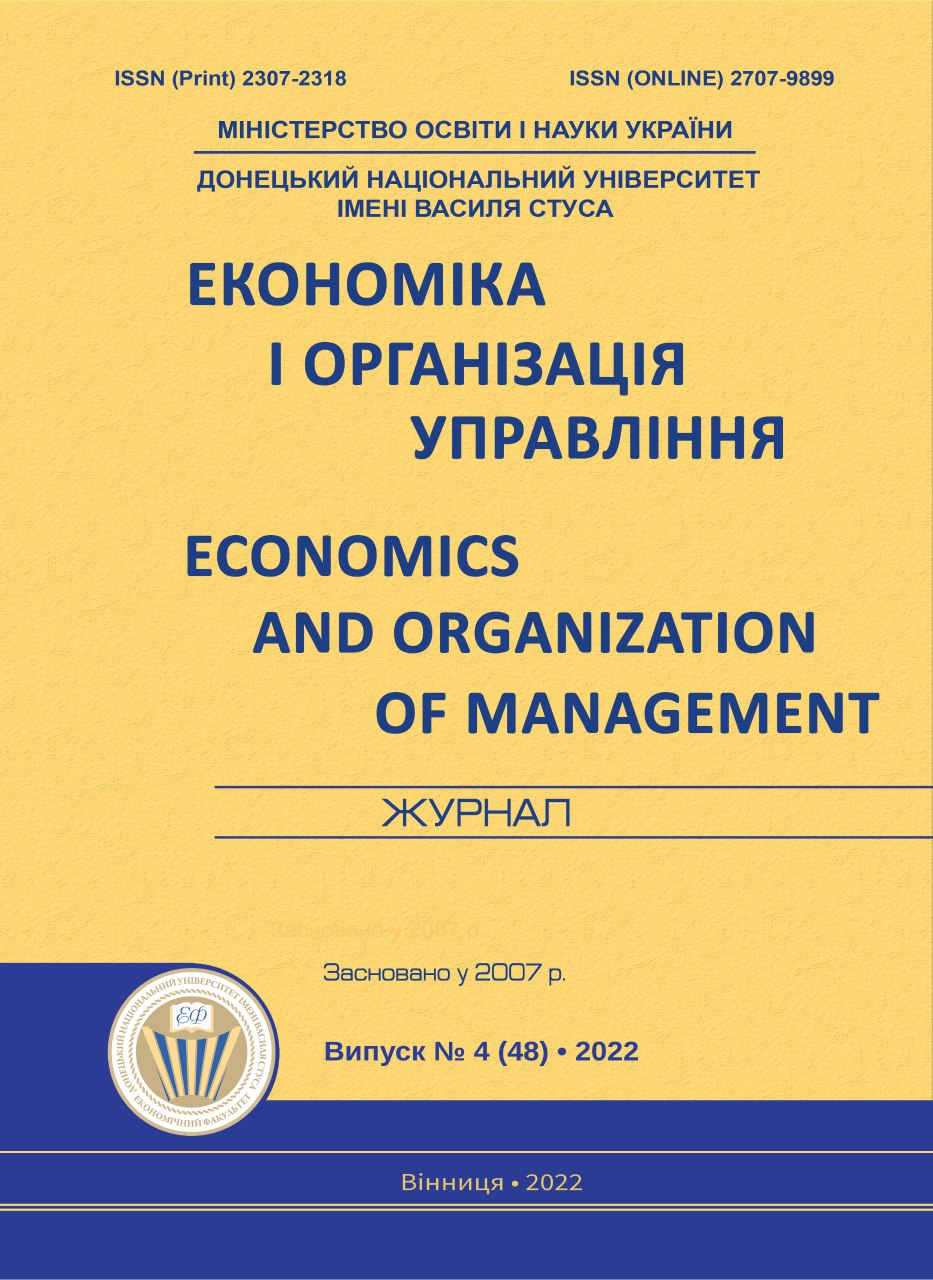Methodological approach to the assessment of the current financial stability of higher education institutions
DOI:
https://doi.org/10.31558/2307-2318.2022.4.11Keywords:
financial stability; higher education institutions; university; university income; contingent; indicators; method of assessing financial stability; information supportAbstract
Methodological approaches to assessing the financial stability of universities in the international scientific community were studied, an algorithm for assessing the current financial stability of higher education institutions was proposed, which includes the purpose of the assessment, the choice of the type of assessment, the formation of information support with the identification of available sources of information, a system of indicators/indexes for the analysis of the current of financial sustainability of higher education institutions, their analysis and visualization of data, assessment of the level of financial sustainability of higher education institutions and management decision-making. The proposed groups of indicators of the current financial stability of universities are characterized. The methodology for calculating a group of dynamic indicators of the university's income is defined, and recommended values for each indicator are proposed. A practical test of the dynamic indicators of the university's income was carried out using a panel approach with a two-dimensional array of data: a sample of 35 economic, polytechnic, classical, pedagogical and other types of higher education institutions and time period. The results are presented with the help of visualization tools, which makes it possible to draw general conclusions about the current financial stability of universities and the probability of the risk of its violation.
References
Di Carlo F., Modugno G., Agasisti T., Catalano G. Changing the Accounting System to Foster Universities’ Financial Sustainability: First Evidence from Italy. Sustainability. 2019. № 11(21):6151. doi: 10.3390/su11216151
Garland M. How vulnerable are you? Assessing the financial health of England’s universities. Perspectives. 2020. № 24(2),. Pp. 43–52. doi: 10.1080/13603108.2019.1689374.
Jaafar J.A., Latiff A.R.A., Daud Z.M. et al. Does Revenue Diversification Strategy Affect the Financial Sustainability of Malaysian Public Universities? A Panel Data Analysis. High Educ Policy. 2021. doi:10.1057/s41307-021-00247-9.
Chikoto GL., Ling Q., Neely DG. The adoption and use of the Hirschman–Herfindahl Index in nonprofit research: does revenue diversification measurement matter? VOLUNTAS. 2016. № 27(3):1425–1447. doi: 10.1007/s11266-015-9562-6.
Ovchinnikova O., Kokuytseva T., Butrova E. Financial Stability of University as Factor Improving the Competitive Ability of the National Economy. Proceeding of the International Science and Technology Conference" FarEastСon 2021". Springer, Singapore. 2022.
Kuzmina J. Financial sustainability of higher education institutions. Society. Integration. Education Proceedings of the International Scientific Conference. 2021. Vol. VI, May 28th-29th. Pp. 324-335.
Almagtomea A., Shakerb, A. Al-Fatlawic Q., Bekheetd H. The integration between financial sustainability andaccountability in higher education institutions: an exploratorycase study. Integration. 2019. No. 8 (2), 202-221.
Alshubiri F. N. Analysis of financial sustainability indicators of higher education institutions on foreign direct investment: Empirical evidence in OECD countries. International Journal of Sustainability in Higher Education. 2021. Vol. 22 No. 1, pp. 77-99. doi: 10.1108/IJSHE-10-2019-0306.
Міністерство фінансів України. URL: https://mof.gov.ua/uk.
Laktionova O., Yurchyshena L., Matviychuk V. Income and financial stability of university: sectoral aproach. Фінансово-кредитна діяльність: проблеми теорії та практики. 2021. 35 (40). С. 204-2015.
Національне положення (стандарт) бухгалтерського обліку в державному секторі 101 «Подання фінансової звітності». URL: https://zakon.rada.gov.ua/laws/show/z0095-11#Text

